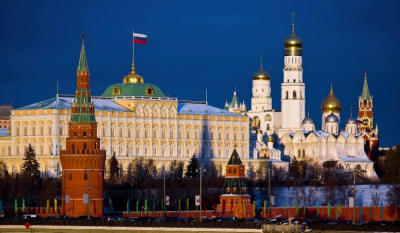The Kremlin indicated today, Tuesday, that Sweden's anticipated accession to NATO will have clear negative ramifications for Russian security, requiring a response similar to that taken upon Finland's entry into the alliance. It accused NATO of treating Russia as an "enemy," stating that it will closely monitor any decisions made at the two-day NATO summit and will respond with unspecified measures to protect the country's security.
Kremlin spokesman Dmitry Peskov downplayed Turkey's decision to withdraw its opposition to Sweden's membership, saying, "Ankara has commitments as a member of the alliance, and Moscow has no illusions about this." He noted that "there are differences between Russia and Turkey, but there are also common interests, and Moscow intends to develop its relations with Ankara."
Peskov added, "They (the leaders of the alliance) view Russia as an enemy and opponent. From this perspective, discussions will take place (in Vilnius)." He continued, "We are monitoring this carefully because much of what has been said will be subjected to close analysis to make decisions to ensure our security." He expressed that "European leaders apparently do not understand that moving the alliance's military infrastructure toward Russia's borders was a mistake."
On another note, Peskov mentioned that "France's decision to supply Ukraine with long-range missiles is a wrong decision and will have consequences for Ukraine." Meanwhile, Russian Foreign Minister Sergei Lavrov confirmed that Russia is taking "appropriate" measures in a timely manner in response to the potential membership of Sweden and Ukraine in NATO.
In his remarks coinciding with the first day of the NATO summit in Vilnius, Lavrov stated that Russia will protect its "legitimate security interests." Peskov remarked, "But we also know that… no one wants to see Turkey in Europe, I mean the Europeans. Here our Turkish partners should not wear rose-colored glasses either." Peskov referred to the long-standing resistance of the European Union to accept Turkey, a large country with a predominantly Muslim population, that is relatively poor and neighboring the Middle East. Ankara first applied to join the bloc in 1987.




